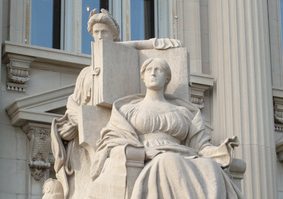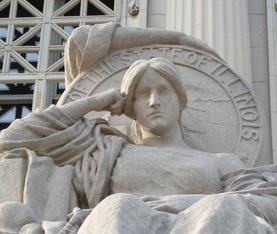The U.S. Court of Appeals for the First Circuit recently held that the cancellation of a foreclosure sale prohibits a borrower from obtaining a permanent injunction to bar a foreclosure, as they would not suffer irreparable harm. A copy of the opinion in Frangos v. Bank of America, N.A. is available at: Link to Opinion. In 2005, the plaintiff borrowers obtained a refinance mortgage loan on their home. The borrowers defaulted on their mortgage in 2007 and again in 2009. The loan was modified but the borrowers still had not made a mortgage payment since 2009. Between 2011 and 2013,…
Posts published in “Foreclosure”
The District Court of Appeal of Florida, Second District, recently reversed a final judgment of foreclosure, instead directing the trial court to enter judgment in favor of the borrower. In so ruling, the Appellate Court rejected and disregarded the current servicer’s evidence that the loan modification documents had not been received, because the borrowers introduced evidence that they had returned their signed loan modification agreement materials to the prior servicer, the prior servicer received the materials, and the prior servicer accepted the modified payments. With this evidence, the Appellate Court held that the loan had been modified. A copy of…
The Court of Appeals of California, Fourth District, recently held that a homeowner who has been foreclosed on by one with no right to do so — by those allegations alone — sustains prejudice or harm sufficient to constitute a cause of action for wrongful foreclosure. Citing Glaski v. Bank of America (2013) 218 Cal.App.4th 1079, the Appellate Court also held that, because the plaintiff properly alleged the foreclosure was void and not merely voidable, tender was not required to state a cause of action for quiet title or for cancellation of instruments. A copy of the opinion in Sciarratta v.…
In an appeal that garnered significant attention from consumer groups who filed briefs as amici curiae, the Supreme Court of Pennsylvania recently held that any entity that charges excessive attorney’s fees in connection with a foreclosure may be liable for treble damages, fines, and attorney’s fees under the Pennsylvania Loan Interest Protection Law. A copy of the opinion in Glover v. Udren Law Offices, PC is available at: Link to Opinion. The borrower entered into a residential mortgage in 2002, and later defaulted. In the foreclosure proceedings that followed, the mortgagee’s counsel took several actions on the mortgagee’s behalf. The parties…
The Appellate Division of the Supreme Court of New York recently reversed the dismissal of a foreclosure action involving an electronic note, holding that the mortgagee’s evidence of the eNote transaction history and the eNote itself were sufficient to establish the mortgagee’s standing to foreclose. A copy of the opinion in New York Community Bank v. McClendon is available at: Link to Opinion. On Nov. 7, 2008, the borrower executed a mortgage in favor of a lender bank to secure a promissory note executed the same day for $544,000. The note was signed by electronic signature. The lender bank was subsequently…
As an example of the conflicting and contrasting court rulings on the effect of surrender in bankruptcy (see our prior update), the District Court of Appeal of the State of Florida, Fifth District, recently dismissed a borrower’s appeal from a final judgment of foreclosure because the borrower admitted during the course of his bankruptcy proceeding that he owed the mortgage debt and stated his intention to surrender the mortgaged property. A copy of the opinion in Rivera v. BAC Home Loans is available at: Link to Opinion. A mortgage loan borrower filed for bankruptcy relief while his appeal of a foreclosure…
The U.S. Bankruptcy Court for the Southern District of Florida recently denied a creditor’s motion to compel the debtor to surrender mortgaged property and also denied the debtor’s motion to stay the case, holding that a chapter 7 debtor who indicates surrender of real property in his statement of intention is not obligated to surrender that property to the lienholder, whether or not the property is administered by the chapter 7 trustee. Disagreeing with other judges in the same district and elsewhere on this issue, the bankruptcy judge held that “[c]ompulsory surrender of real property collateral by a debtor to…
The Supreme Court of Michigan recently held that the full credit bid rule did not bar contract claims brought by a mortgagee against non-borrower third parties. The Michigan Supreme Court also held that the closing instructions at issue constituted a contract upon which a breach of contract claim could be brought. A copy of the opinion in Bank of America, NA v. First American Title Insurance Co. is available at: Link to Opinion. The plaintiff lender partially financed four properties and shortly after closing, all four borrowers defaulted. The lender foreclosed by advertisement and subsequently bought all four properties at sheriff’s…
The U.S. Court of Appeals for the Eighth Circuit recently held that two borrowers did not have standing to challenge an allegedly invalid mortgage assignment between creditors, because the borrowers could not show harm fairly traceable to the allegedly invalid assignment. Additionally, the Court held that the borrowers failed to state a plausible claim for relief for allegedly failing to comply with the notice of intent to accelerate provisions in their mortgage. A copy of the opinion in Brown v. Green Tree Servicing LLC is available at: Link to Opinion. The plaintiff borrowers alleged that their mortgage loan servicer did not…
The District Court of Appeal of the State of Florida, Fourth District, recently reversed a final judgment of foreclosure, holding that the mortgagee failed to prove that it had standing to foreclose because the note was specially indorsed to an affiliate of the lender, which later merged into the lender, but only the lender and not its former affiliate subsequently indorsed the note to the mortgagee, and the mortgagee did not present evidence of the extent of any assets transferred as part of the merger. A copy of the opinion in Abraham Segall v. Wachovia Bank is available at: Link to Opinion. The…
The Appellate Court of Illinois, First District, recently held that an allegation that the plaintiff is a “mortgagee” under the Illinois Mortgage Foreclosure Law (IMFL) is sufficient to plead its capacity to sue. A copy of the opinion in Wells Fargo Bank, N.A. v. Mundie is available at: Link to Opinion. The plaintiff mortgagee filed a complaint alleging defendant borrowers were in default, and that it was the “mortgagee” under the IMFL, 735 ILCS 5/15-1208. The plaintiff attached copies of the mortgage and the note indorsed in blank to the complaint. The defendants subsequently filed a motion to dismiss and requested…
The Appellate Court of Illinois, First District, recently held that the form foreclosure complaint provided by the Illinois Mortgage Foreclosure Law (IMFL) complies with procedural due process guarantees of the Fifth and Fourteenth Amendments of the United States Constitution, and does not violate the Illinois Constitution’s separation of powers doctrine by usurping the Illinois judiciary’s rulemaking power. A copy of the opinion in Wells Fargo Bank N.A. v. Bednarz is available at: Link to Opinion. A mortgagee foreclosed on the defendant borrower’s residential property. The mortgagee’s complaint tracked a form complaint set forth in section 1504(a) of the IMFL. Section 15-1504(c)…












